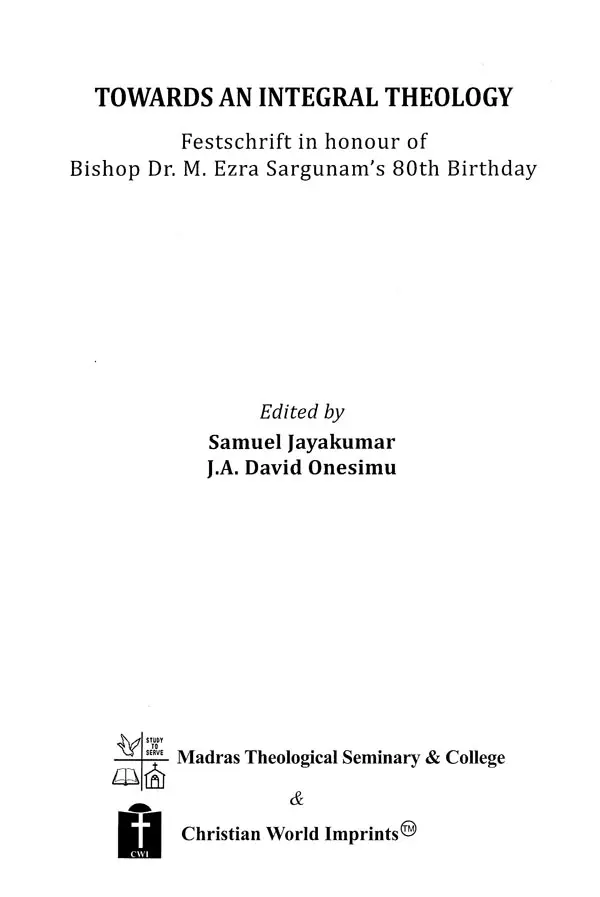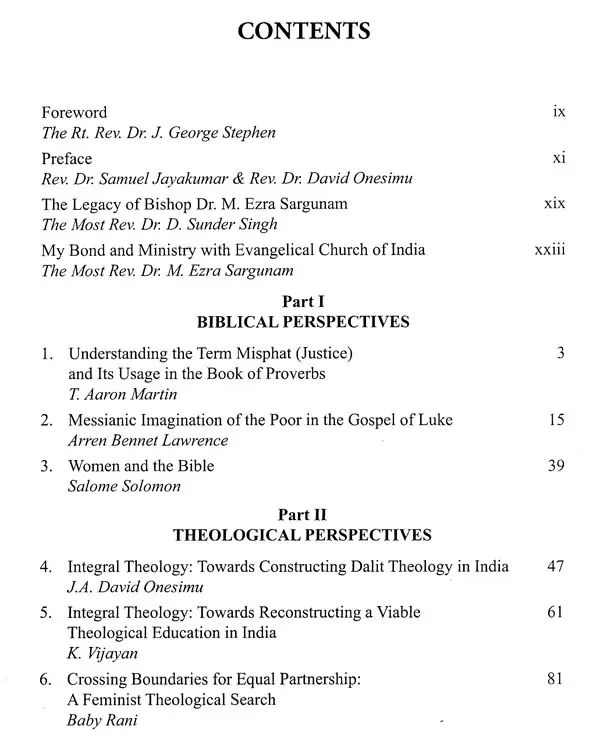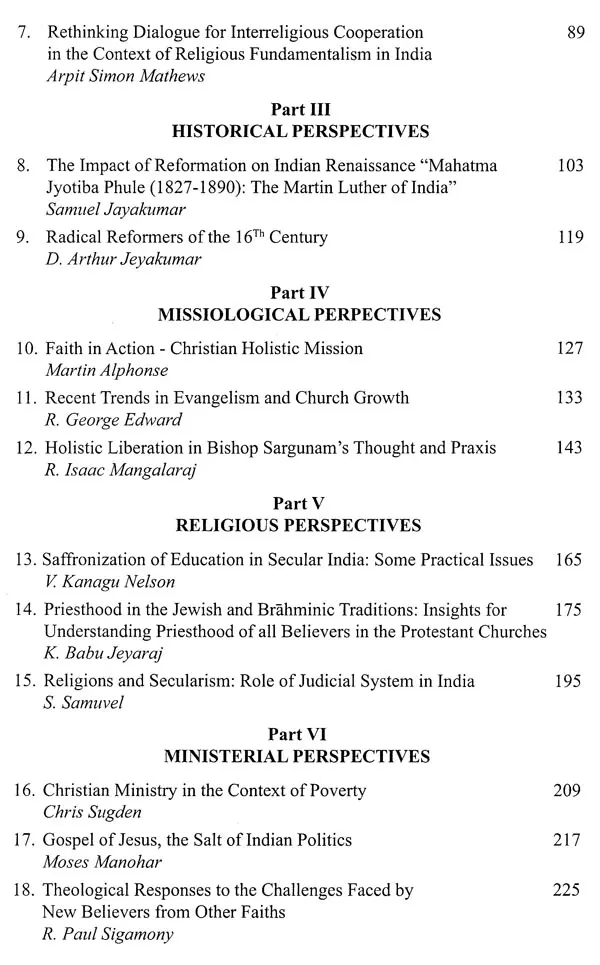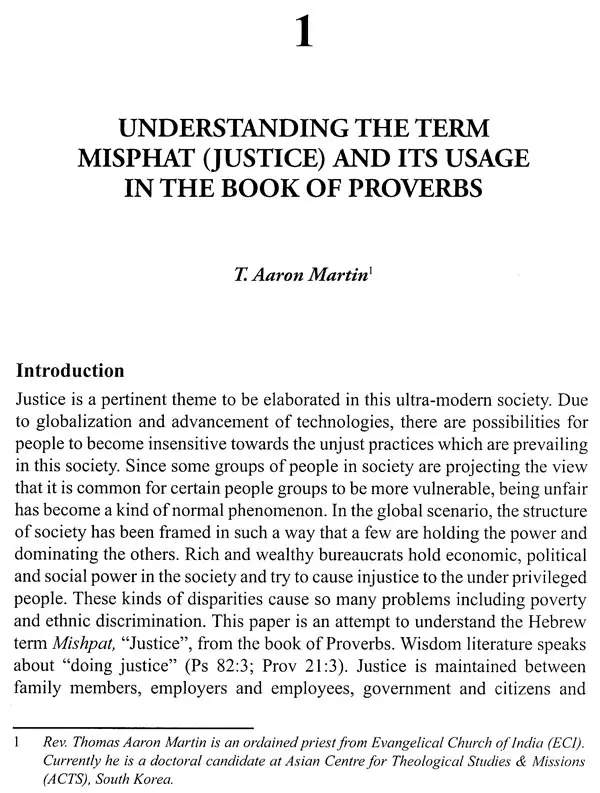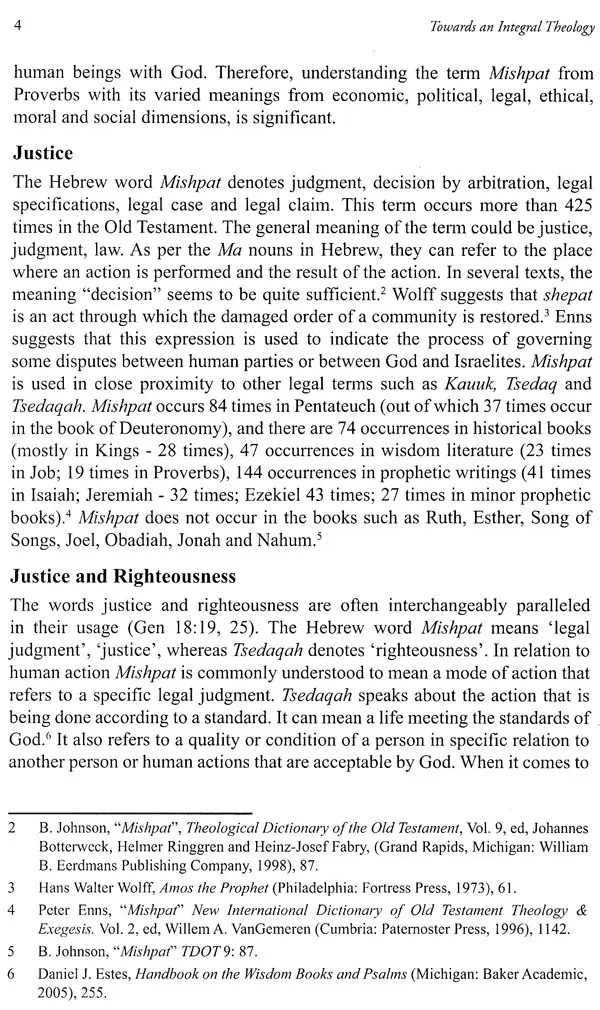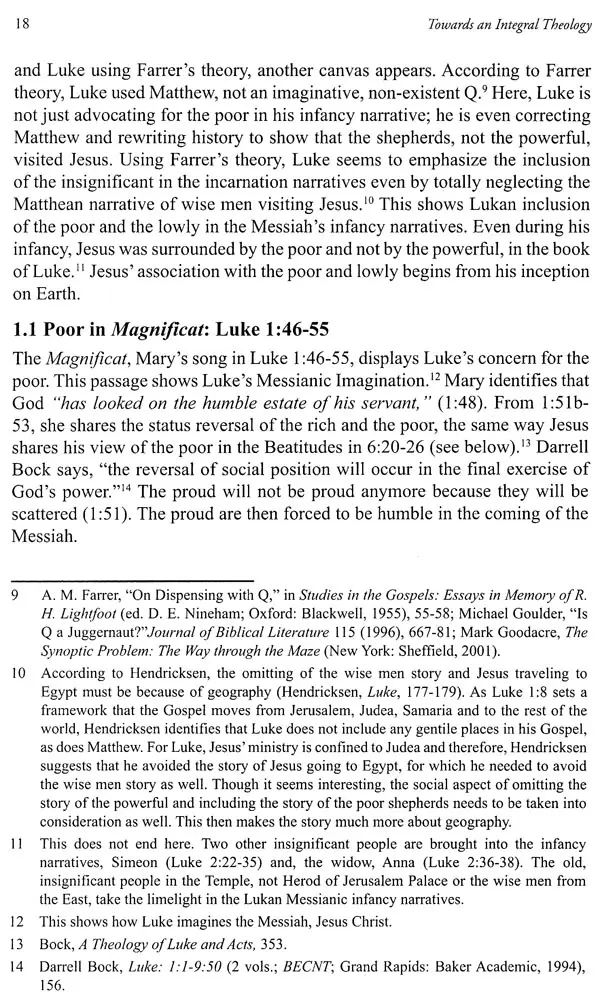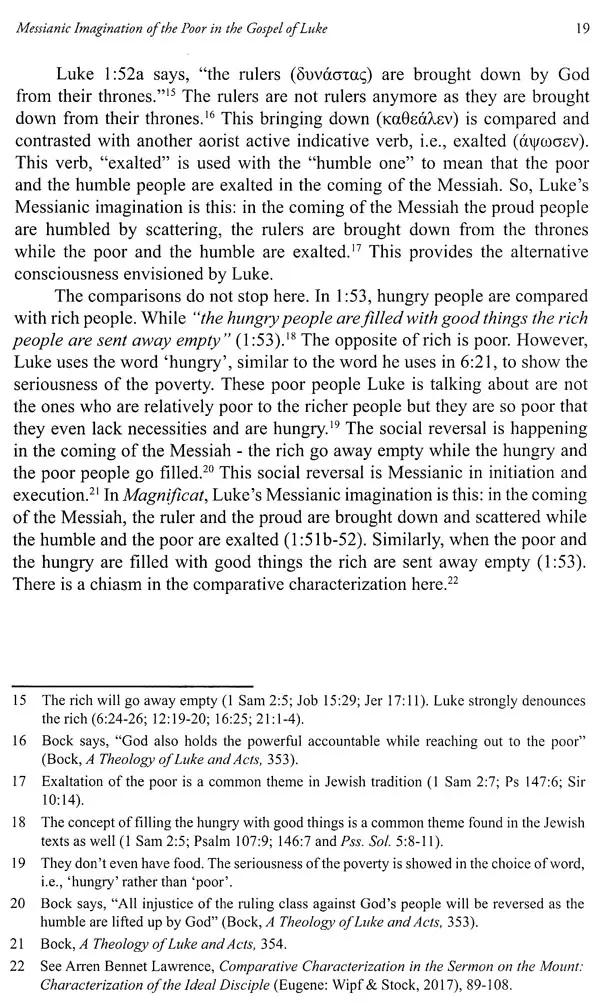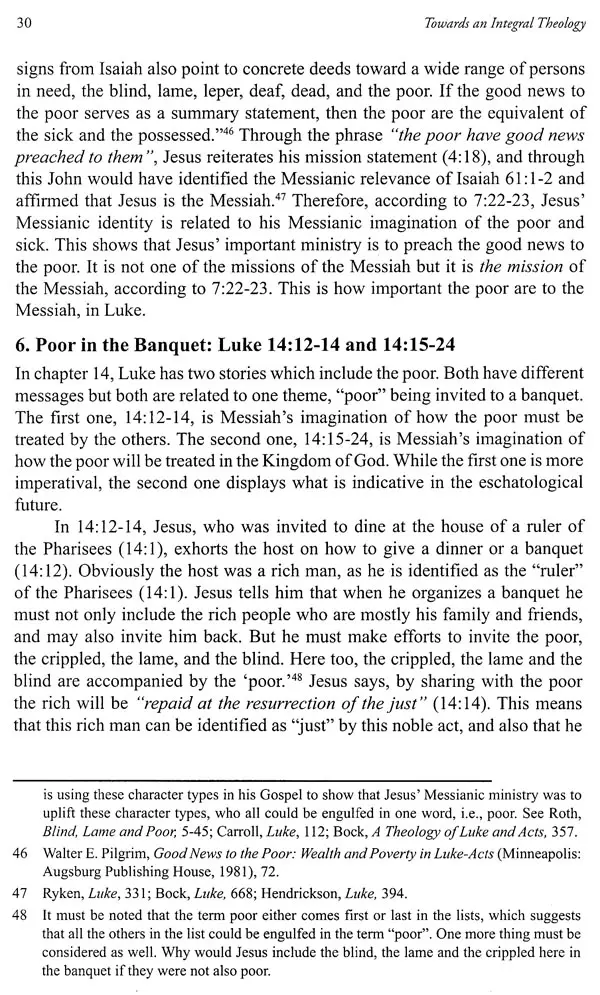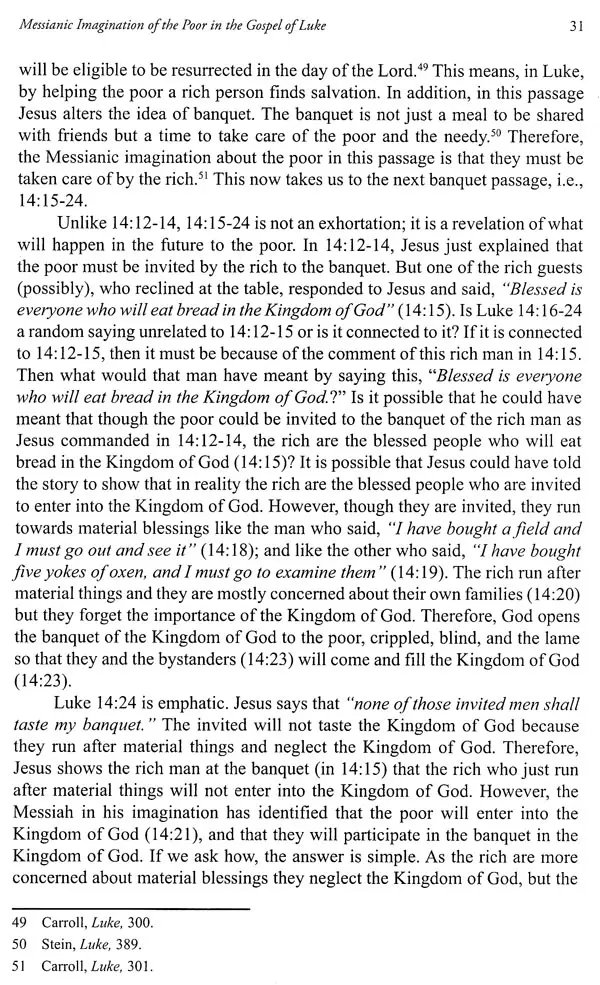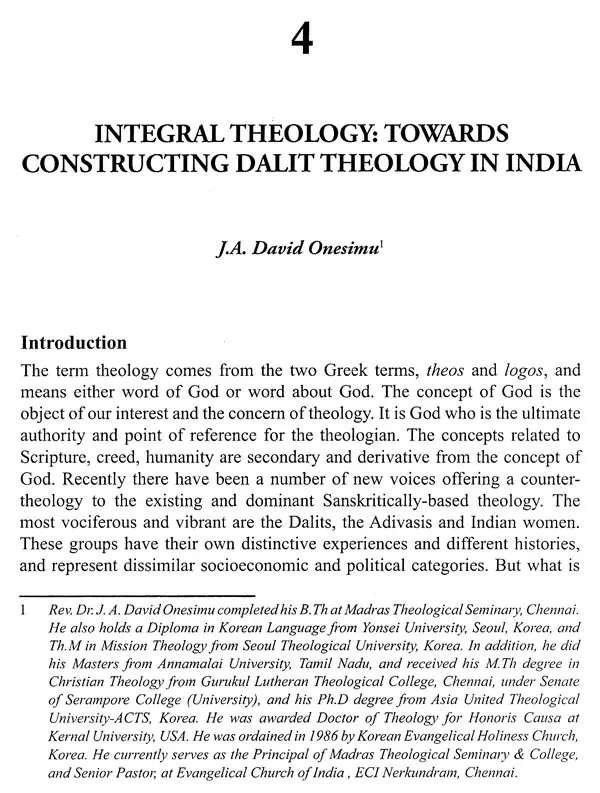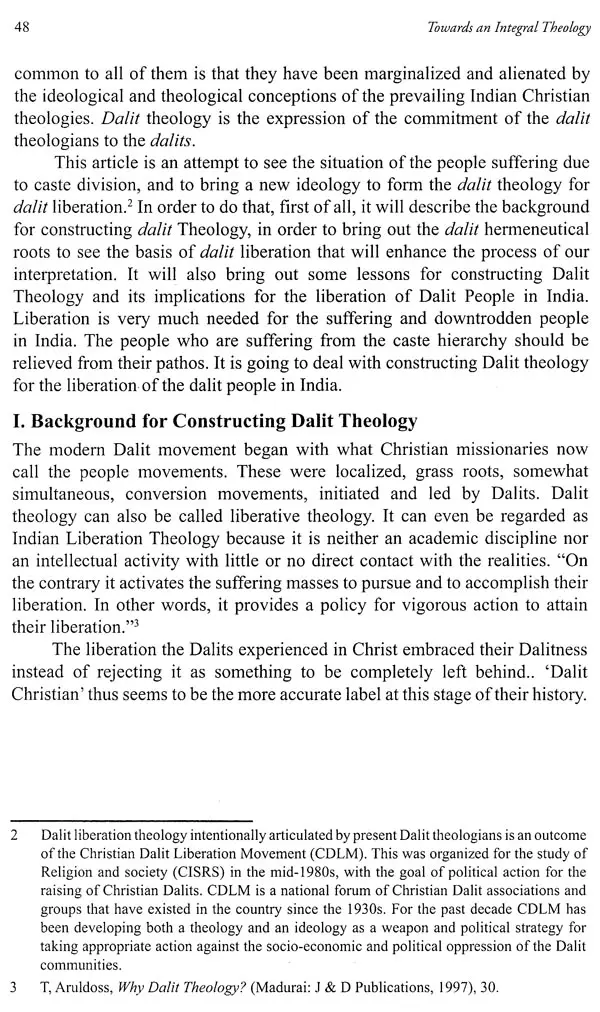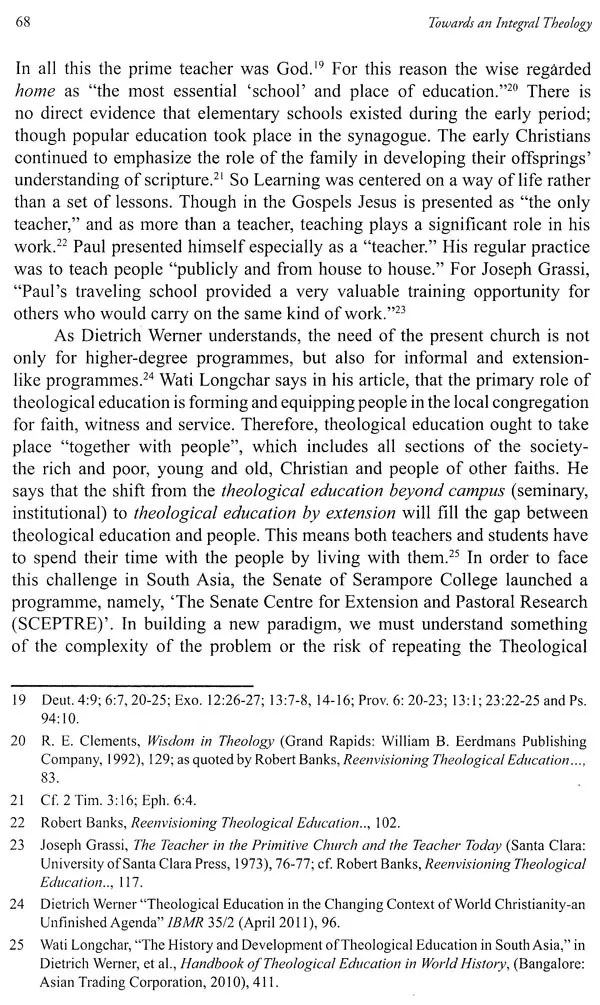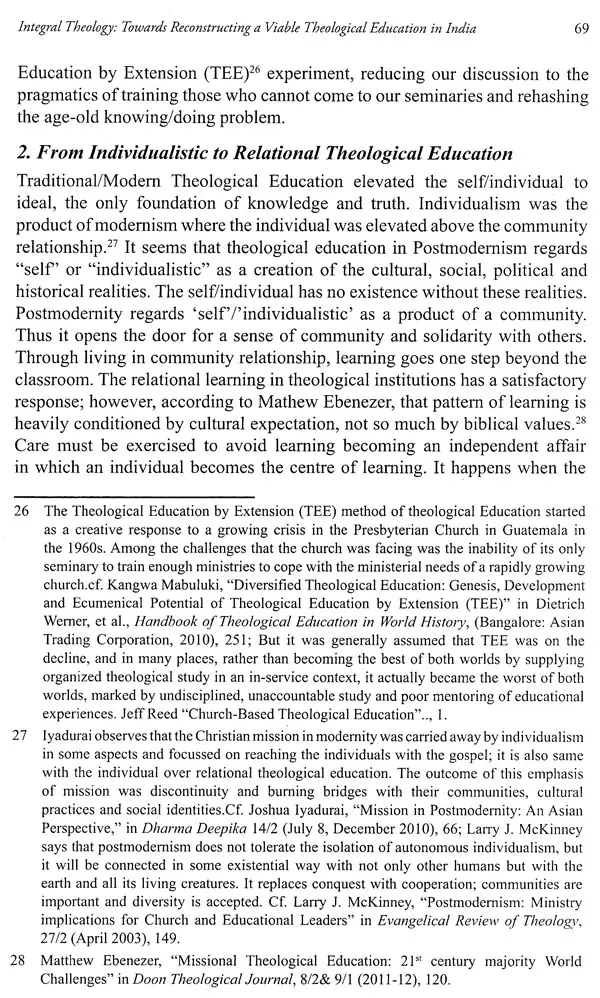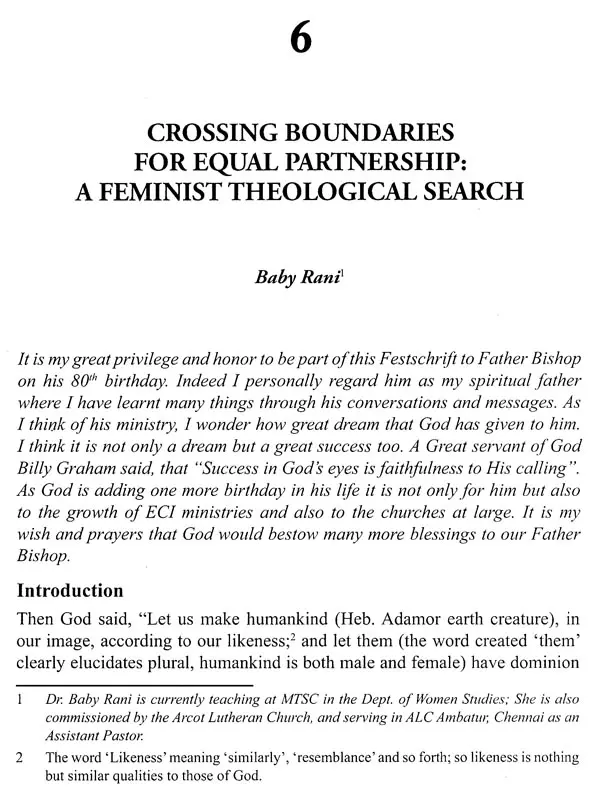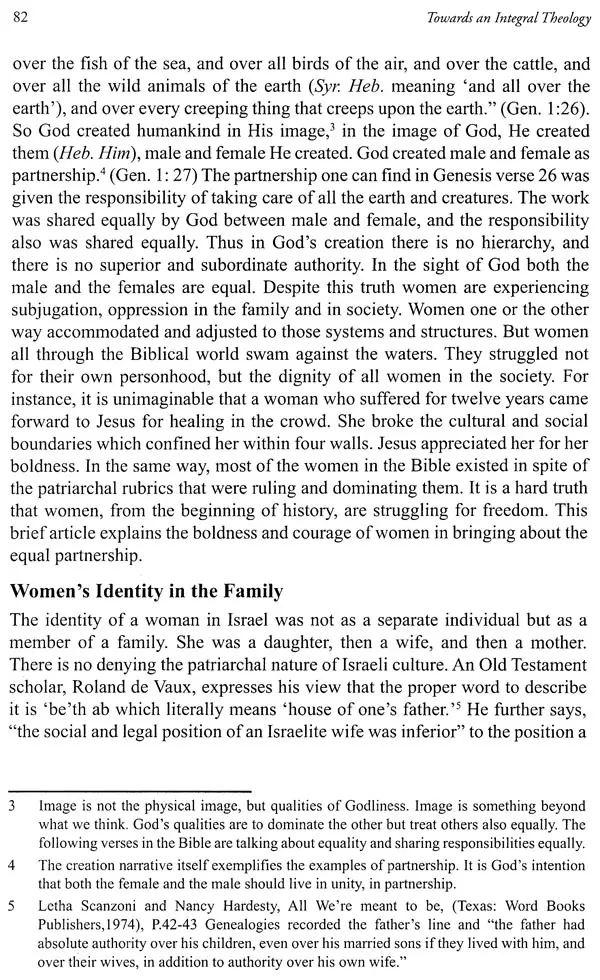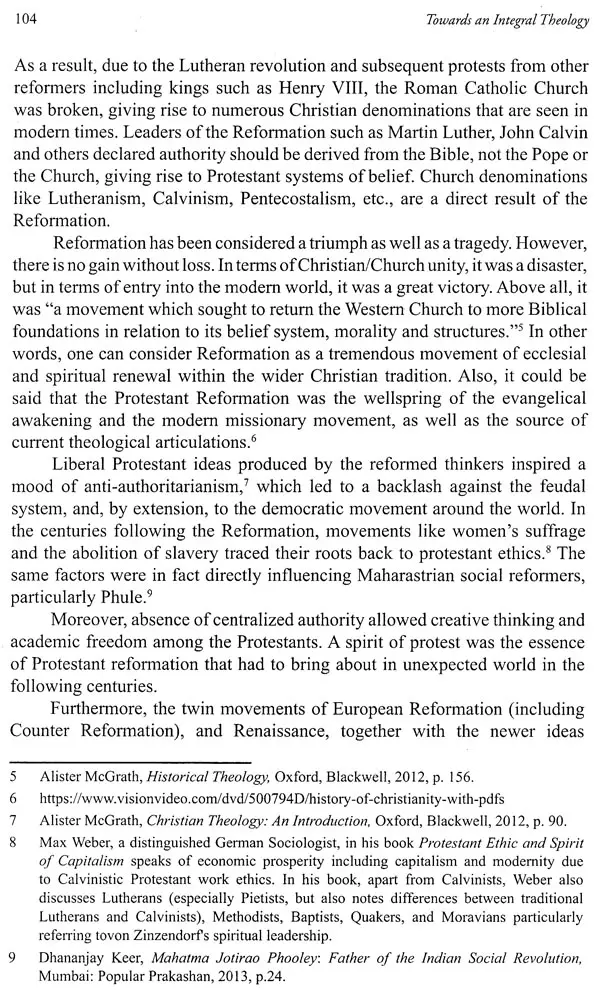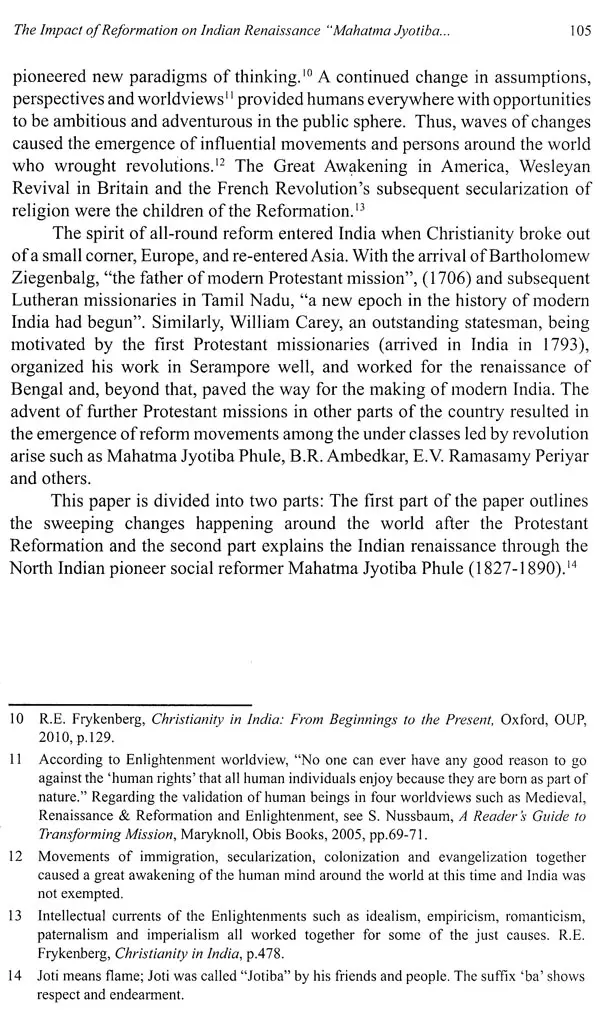
Towards an Integral Theology (Festschrift in Honour of Bishop Dr. M. Ezra Sargunam's 80th Birthday)
Book Specification
| Item Code: | UBA338 |
| Author: | Samuel Jayakumar and J. A. David Onesimu |
| Publisher: | Madras Theological Seminary & College& Christian World Imprints |
| Language: | English |
| Edition: | 2018 |
| ISBN: | 9789351482970 |
| Pages: | 261 |
| Cover: | HARDCOVER |
| Other Details | 9.50 X 6.50 inch |
| Weight | 660 gm |
Book Description
The writings in the book "Towards an Integral Theology" have addressed a wide range of relevant biblical, theological, historical, missiological, religious, and ministerial issues in relation to integral theology in the postmodern context of India. These reforming, interdisciplinary and integrating reflections will provide alternatives for the churches to go beyond the divisive factors and to have a spirit of integration in its mission. Bishop Ezra Sargunam in this regard has placed himself as a bridge builder between the theoreticians and the practitioners, the liberals and the conservatives, the ecumenicals and the evangelicals, and the secular and the sacred. Therefore this book explores a movement towards an integral theology for the Church that needs to be explored, expounded and experienced further.
Rev. Dr. Samuel Jayakumar, PhD, is currently Director of Evangelical Theological Academy. He is the author of Dalit Consciousness and Christian Conversion; Mission Reader;' and Renewal of Mission.' He has co-edited Mission Mandate ll;' and Christian Contribution to Nation Building.' He has contributed articles to academic Journals such as Transformation, Indian Church History Review, Religion and Society' and Evangelical Review of Theology.' He is a Langham Scholar.
Rev. Dr. J. A. David Onesimu serves as the Principal of the Madras Theological Seminary and College and is a Senior Pastor at Evangelical Church of India, Nerkundram, Chennai. He did his Th.M. in Mission Theology from Seoul Theological University, South Korea; M.Th. in Christian Theology under Senate of Serampore College (University); and his Ph.D. from Asia United Theological University-ACTS, Korea. He also holds a Diploma in Korean Language from Yonsei University, Seoul, Korea. He was awarded Doctor of Theology (Honoris Causa) by Kernal University, USA. He was ordained in 1986 by Korean Evangelical Holiness Church, Korea.
I feel deeply honoured to be associated with the 80 birthday celebrations of Bishop Dr. M. Ezra Sargunam. It is my pleasant privilege to contribute an article to his festschrift.
When I was thinking of this occasion it struck me, his birthday coincides with the celebration of 500 years of reformation. I do not think it is a coincident but a remarkable plan of God who continues to send people to reform the Church and Society. Dr. Sargunam has been a great reformer all along.
Felix Wilfred, in his book "Asian Public Theology", asks the question, "How can religion and theology address public issues affecting the people, especially the Poorest of the Poor?" This question moulded his ministry. As a young man he was attracted towards Dravidian Movement and its leaders. He would attend meetings addressed by E.V. Ramasamy Periyar and C.N, Annadurai. Their speeches inspired him to do something for the poor.
The greatness of Bishop Sargunam is, he never lost his focus. His devotion to God guided him to serve humanity and especially the poor and the minorities. His service was appreciated by many religious and political leaders. None of them questioned his religious standing. As a Chairperson of the Minorities Commission his personal rapport with the government of that time helped him to give wonderful leadership. The Christian minorities in particular were feeling secured.
Pandit Nehru observed one cannot preach religion to a hungry man. The Lord said: 'Human beings do not live on bread alone. 'Bishop Sargunam combined these two views. Throughout his ministry everyone saw his deep commitment of taking the gospel to remote places. He did not stop with that. He showed those converts God's concern for them.
**Contents and Sample Pages**
